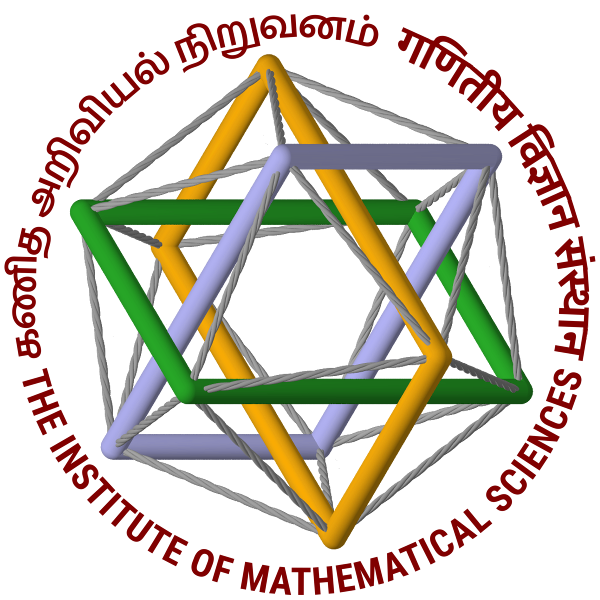A national institute for research in the theoretical sciences
Upcoming Events
Nov 04
14:00-15:00
14:00-15:00
Biswajit Sahoo | King's College London
Physics Seminar | Alladi Ramakrishnan Hall
Nov 05
11:30-12:30
11:30-12:30
Arpit Das | University of Edinburg
Physics Seminar | Alladi Ramakrishnan Hall
Nov 05
14:00-15:00
14:00-15:00
Supratim Das Bakshi | Argonne National Laboratory, Chicago, IL, USA
Physics Seminar | Alladi Ramakrishnan Hall
Nov 05
15:30-17:00
15:30-17:00
Saket+ | IMSc
Parameterized Complexity Seminar
TCS Seminar | E C G Sudarshan Hall
Nov 06
10:00-11:00
10:00-11:00
Karthik C S | Department of Computer Science, Rutgers University
TCS Seminar | Alladi Ramakrishnan Hall





